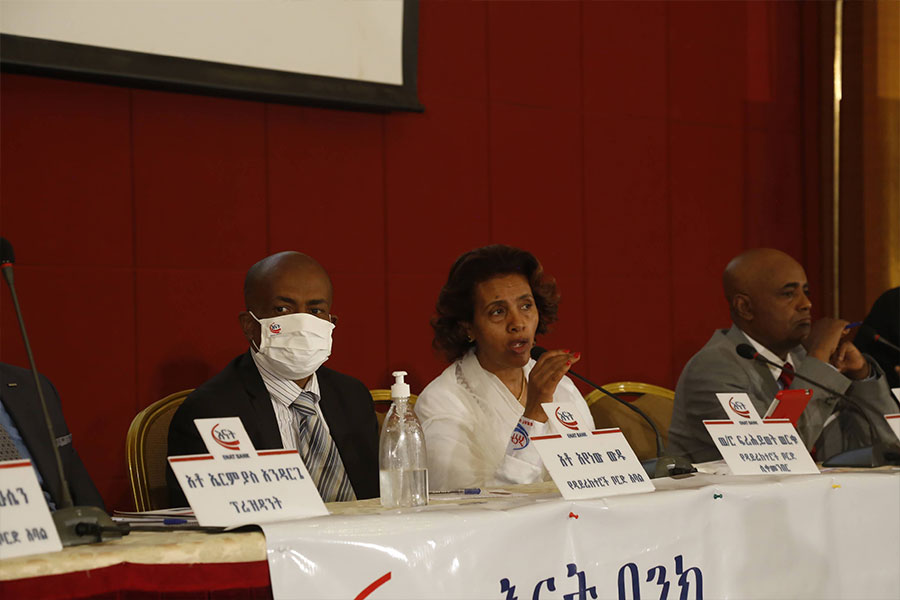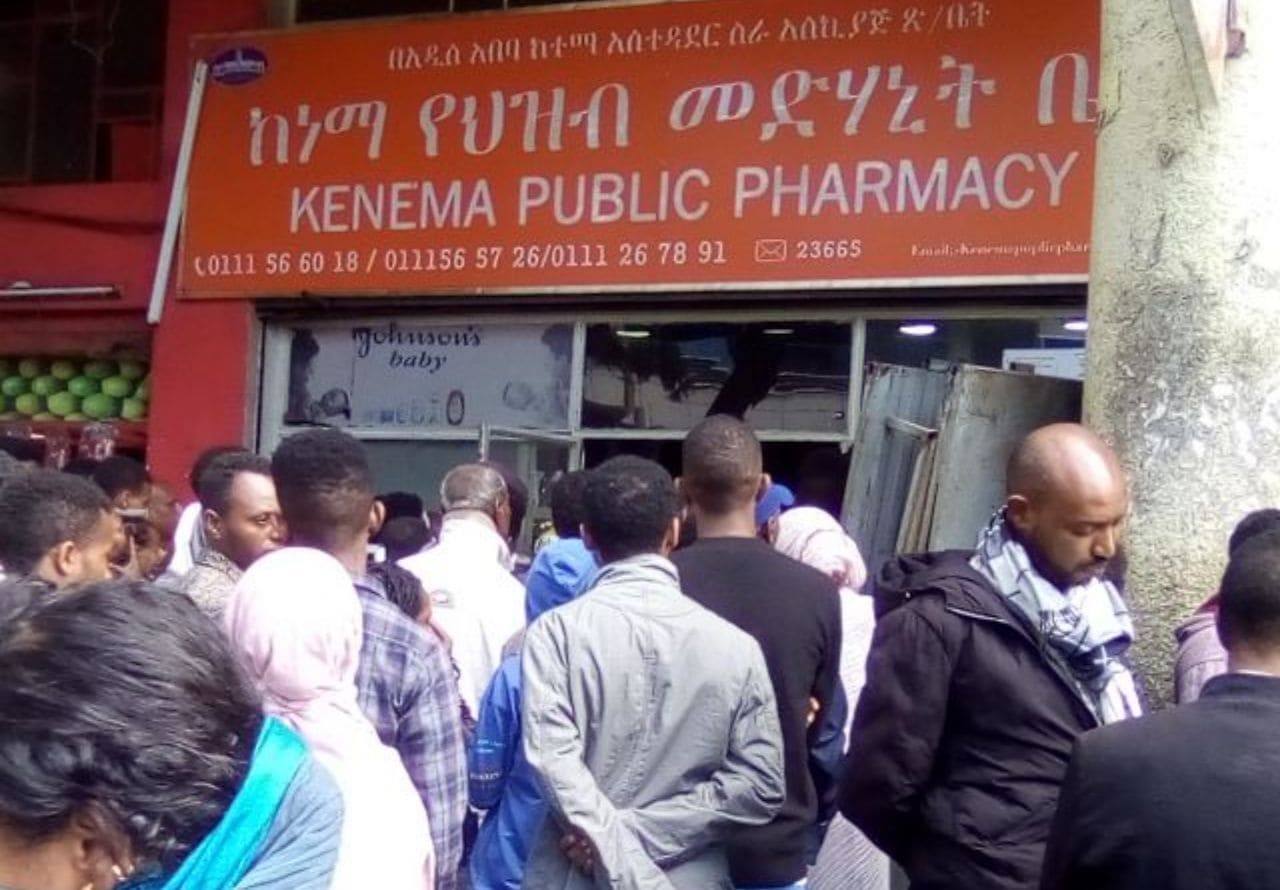
Radar | Nov 20,2023
Jul 29 , 2023
By BERSABEH GEBRE ( FORTUNE STAFF WRITER )
The commercial banking industry finds itself ensnared in a contentious tax dispute, rooted in a recent ruling by the Federal Supreme Court in favour of the government. This has left the country’s banks poised for a financial faceoff with senior officials of the high-income taxpayers' bureau under the Ministry of Revenues.
An unprecedented demand for back-taxes, along with interest and penalties, on previously untaxed shareholder earnings, shocked the industry leaders. They warn that this tax claim not only reaches back four years but also foreshadows a potential financial earthquake that could upset the financial sector.
The move by the tax bureau takes advantage of a ruling made by justices of the Federal Supreme Court Cassation Bench, upholding a lower court decision on a case between Tsehay Industries and the Federal Tax Appeal Commission.
A legal standoff six years ago between lawyers representing Tsehay Industries S. C. (TISC) and the Appellate Tax Commission over profit tax levied on retained earnings earmarked for reinvestment into the company as paid-up capital set the fire on.
Tsehay Industries’ shareholders increased the company’s capital to 439.5 million Br after they acquired the 1.2 million Br capital Qality Metal from the state in 2012. However, several shares remained subscribed four years later, when shareholders agreed to use part of a 48.9 million Br net profit to pay for the subscribed capital of some of the shareholders.
The company passed that year without paying dividend tax on the amount used to cover the subscribed capital. It was a decision challenged by federal tax officials in a court of law, on the ground that Article 61 of the income tax proclamation subjects undistributed dividends to 10pc tax, provided they are not reinvested. The Appellate Commission, siding with the Ministry, maintained that these profits were indeed taxable.
Justices at the Supreme Court agreed. Shareholder earnings, used to pay for subscribed capital commitments, were liable to a dividend tax.
The Ethiopian Bankers Association, chaired by Abie Sano, also president of the state-owned Commercial Bank of Ethiopia (CBE), has spent the past two months exploring ways with bankers to respond to this development. Its leaders have filed their appeal before the Ministry of Finance and the National Bank of Ethiopia (NBE), challenging the tax bureau’s demands.
“The commercial banks have been pleading with the tax officials to recognise the implications of this obligation,” said Demisew Kassahun, secretary of the Association.
The implications he referred to include a potential industry-wide shock that could undermine the banks' capacities to compete within the sector. This financial stress comes at a particularly delicate time, with foreign banks poised to make an entry into the Ethiopian financial market. The Association’s leaders argued that the demanded taxes could dramatically diminish their financial strength.
There is a fear that this financial pressure might be too much for some banks to bear.
“Some of the banks may collapse,” reads the letter signed by Abie.
It also predicts a fierce dispute set to rise between shareholders, the government, as well as the banks’ directors and executives, highlighting that shareholders could potentially bear the ultimate brunt of this tax burden.
Almost all the commercial banks have made public offering to raise their capital base in response to a directive the central bank issued two years ago. It instructed all the banks to increase their paid-up capital to five billion Birr by 2026. However, only a few titans in the industry have managed to reach this benchmark as the deadline steadily approaches. Several are banks inching towards this goal by issuing new shares and offering existing shareholders.
The Finance Minister, Ahmed Shide, wrote a letter to the Ministry of Revenues in August last year, urging that it was within the spirit of the law to exempt dividend taxes as shareholders used these dividends to fulfil their subscribed capital. However, a legal expert at the Ministry of Revenues, Wondimu Adisse, argued otherwise. Exemptions for capital increase are permitted only if shareholders have capitalised dividends within 12 months, according to Wondimu.
“The banks’ assumption that dividends used to recapitalise subscribed capital are exempted from taxation is erroneous,” Wondimu told Fortune. “It's assumed that they are paying off liabilities as opposed to new investment.”
The Ministry, he added, has the authority to examine taxpayers' status and eligibility to ask for all of the duties which have not been paid.
This comes as the federal government hopes to generate a revenue of 440 billion Br in the next fiscal year, 35 billion Br higher than collected this year.
For Tadesse Lencho, a veteran expert of Ethiopian tax policy and legislation and managing partner at Tbest Law Fir, tax authorities’ demand is legally acceptable. According to Tadesse, there is no clause in the tax law indicating that exemptions are available for payments made from dividends to fulfill subscribed capital.
“The law grants the privilege of tax exemption only if the company opts to raise the capital and add it within 12 months,” said Tadesse.
Nevertheless, this decision feels like an added strain to commercial banks already grappling with mandatory bond purchases amidst a liquidity crisis. One executive from a top-performing private commercial bank said that his bank had already paid half the amount requested and plans to approach the Federal Tax Appeal Commission to negotiate the remaining balance.
Executives of Berhan Bank are gearing up to lodge a complaint to the high tax payers office to review their demands before the 30-day grace period for tax complaints concludes.
Its President, Girum Tegaye, believes the amount the Bank has been asked to pay is too high for a mid-tier financial institution, though he declined to reveal the exact figure. However, he open about the difficulty of collecting financial data spanning years back, while also trying to source the funding.
The ruling has left shareholders like Elias Negassi, who have invested in the hope of higher returns, feeling uneasy. Elias has been a shareholder at Awash Bank for two decades and owns 811 shares. He fears that the new obligations could render returns on bank shares unattractive, leading investors to favour traditional saving accounts instead.
"This is extremely discouraging," he told Fortune.
The Cooperative Bank of Oromia (COOP) is also on standby, waiting to see if the letter sent by the Association can bring about any significant changes before its executives call an emergency meeting for its 17,000 shareholders.
Despite the legal footing of the taxation decision, financial experts caution that it needs careful scrutiny, as it threatens the viability of financial institutions. Sewale Abate, a finance lecturer at Addis Abeba University, criticized the move to levy a tax on undistributed dividends that are used to pay the subscribed capital.
"It's like picking from their pockets," he commented, summarising the general sentiment of a banking industry grappling with a financial conundrum that could profoundly impact the banking industry and its financial stability.
PUBLISHED ON
Jul 29,2023 [ VOL
24 , NO
1213]

Radar | Nov 20,2023

Verbatim | Nov 06,2021

Fortune News | Jan 22,2022

Fortune News | Aug 11,2024

Fortune News | Dec 05,2018

Covid-19 | Mar 21,2020

Fortune News | Jan 11,2020

Verbatim | Jul 13,2024

Radar | Dec 10,2022

Radar | Nov 20,2021

Dec 22 , 2024 . By TIZITA SHEWAFERAW
Charged with transforming colossal state-owned enterprises into modern and competitiv...

Aug 18 , 2024 . By AKSAH ITALO
Although predictable Yonas Zerihun's job in the ride-hailing service is not immune to...

Jul 28 , 2024 . By TIZITA SHEWAFERAW
Unhabitual, perhaps too many, Samuel Gebreyohannes, 38, used to occasionally enjoy a couple of beers at breakfast. However, he recently swit...

Jul 13 , 2024 . By AKSAH ITALO
Investors who rely on tractors, trucks, and field vehicles for commuting, transporting commodities, and f...

Jun 28 , 2025
Meseret Damtie, the assertive auditor general, has never been shy about naming names...

Jun 21 , 2025
A well-worn adage says, “Budget is not destiny, but it is direction.” Examining t...

Jun 14 , 2025
Yet again, the Horn of Africa is bracing for trouble. A region already frayed by wars...

Jun 7 , 2025
Few promises shine brighter in Addis Abeba than the pledge of a roof for every family...